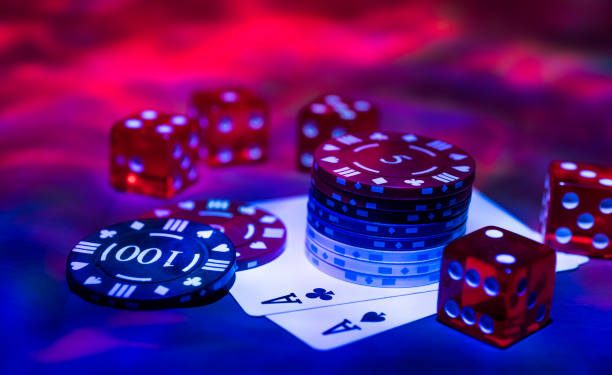Slot games have an undeniable allure, captivating players with their flashing lights, cheerful sounds, and the promise of life-changing jackpots. But what is it about Dragon4d games that make them so addictive and enjoyable? Delving into the psychology behind slot games can shed light on the factors that keep players coming back for more.
The Element of Randomness:
One of the primary psychological factors that make slot games compelling is the element of randomness. Slot machines use random number generators (RNGs) to determine the outcome of each spin. This randomness creates uncertainty and excitement, as players never know what the next spin will bring. The human brain is wired to seek novelty and unpredictability, making slot games highly stimulating.
Reinforcement and Reward Mechanisms:
Slot games incorporate various reinforcement and reward mechanisms to keep players engaged. Regular small wins, even if they don’t cover the initial bet, activate the brain’s reward centers, releasing dopamine – the “feel-good” neurotransmitter. This dopamine release reinforces the behavior and motivates players to continue playing in pursuit of more wins.
Near-Miss Effect:
The near-miss effect is a psychological phenomenon where players experience a sense of almost winning when two of the required symbols for a jackpot align. Even though it’s a loss, the brain interprets near-misses as close calls, triggering the desire to try again in hopes of a “real” win. Game developers sometimes use this effect to create a sense of anticipation and excitement.
Lights, Sounds, and Visuals:
Slot machines are designed to be visually and acoustically appealing. The bright colors, flashing lights, and cheerful sounds create a sensory overload that stimulates the brain and enhances the overall gaming experience. These visual and auditory cues also contribute to the excitement and immersion in the game.
The Gamblers’ Fallacy:
The gamblers’ fallacy is a cognitive bias where players believe that past outcomes influence future results, even in games of chance like slots. For example, if a player experiences a losing streak, they might think they are “due” for a win and continue playing in the hope that luck will eventually turn in their favor.
The Availability Heuristic:
The availability heuristic is another cognitive bias that can influence slot game decisions. Players might be more likely to play a slot if they’ve recently seen or heard about someone winning a significant jackpot on that specific machine, even though the outcome is entirely random.
Conclusion:
The allure of slot games can be attributed to a combination of psychological factors, including randomness, reinforcement mechanisms, and cognitive biases. The excitement and entertainment they provide, combined with the possibility of winning big, make slot games an appealing form of gambling for many players. However, it’s essential to approach slot games with caution and play responsibly, keeping in mind that they are games of chance, and the outcome is entirely random.








